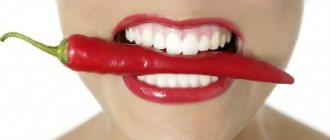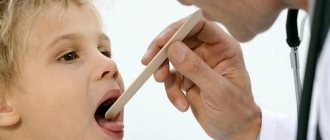Symptoms
Bitterness in the mouth can manifest itself in different ways, for example:
- after overeating and eating certain foods - indicates the reflux of bile into the esophagus and diseases of the bile ducts,
- aftertaste after taking medications means a disruption of the normal microflora, a negative effect on the liver and the destruction of beneficial bacteria,
- after sports training - speaks of liver pathologies.
Bitterness can occur at different times of the day, after physical activity and during the abuse of bad habits. Often the symptom is accompanied by nausea and vomiting, dizziness, heaviness in the side and abdominal pain, white coating on the tongue and a feeling of bloating, heartburn and belching, dry mouth. At the appointment, you need to inform the doctor in detail about each sign.
Causes of bitter belching
In most cases, erection with a bitter taste develops as a result of functional disorders or organic damage to the digestive tract, biliary pathology. Periodic belching without any other warning signs is often physiological in nature. Bitterness in the mouth, associated with dietary errors, occurs after excessive consumption of nuts, seeds, and other fat-rich foods. The unpleasant taste is due to the presence of under-oxidized fats in the regurgitated gastric contents.
Biliary dyskinesia
The cause of bitter belching against the background of impaired contractile function of the bile ducts and gallbladder is the uneven flow of bile into the duodenum and the periodic reflux of intestinal contents into the stomach. Impaired digestion of chyme during dyskinesia causes overstretching of smooth muscle fibers, their reflex contraction with the release of gases and liquid chyme with impurities of bile acids on the oral mucosa. An increase in belching is observed when duodeno-gastric reflux is associated.
Functional disorders of biliary motility are characterized by a combination of bitter erection with other signs of dyspepsia, the severity of which depends on the type of change in contractility. With the hyperkinetic type, sharp pain and spasms appear in the right hypochondrium, nausea, vomiting, and flatulence. Hypokinetic dyskinesia is characterized by dull, nagging pain in the epigastrium and right hypochondrium, bloating, stool instability with frequent constipation.
Cholelithiasis
The appearance of bitter belching in cholelithiasis is more typical during the interictal period, when the patency of the biliary tract remains patency. The bitter taste that patients feel after erection is associated with the reflux of bile into the stomach, esophagus and oral cavity. Frequent regurgitation is caused by stretching of the stomach walls and a reflex reaction to the periodic stagnation of chyme in the proximal intestine. Belching is usually accompanied by pain and discomfort in the right hypochondrium, nausea, and upset bowel movements with a predominance of diarrhea.
Other hepatobiliary diseases
Any pathology that affects the bile ducts and liver can lead to belching with an unpleasant bitter taste. During inflammatory processes in the biliary system, the mechanism of regulation of bile release is disrupted, and general visceral innervation provokes concomitant functional pathology of the gastroduodenal zone. The symptom is potentiated by periodic gaping of the pylorus and the throwing of duodenal chyme with a large amount of concentrated bile into the overlying sections of the gastrointestinal tract. The main hepatobiliary diseases with the symptom of bitter belching are:
- Cholecystitis
. Regurgitation with bitterness can occur not only with cholelithiasis, but also with acalculous cholecystitis. Exacerbation of symptoms is most often associated with errors in the diet (taking fatty or smoked foods). Patients complain of discomfort and pain in the area of the gallbladder projection, nausea, and single vomiting, which does not bring relief. Less common symptoms are constipation, dysphagia, and flatulence. - Postcholecystectomy syndrome
. Eructation with a bitter taste is observed with pathological bile circulation in the intestines and secondary changes in the motor function of the digestive tract. In addition to bitter belching, intense pain localized in the right hypochondrium is characteristic, which is detected in 70% of patients. Concomitant malabsorption syndrome causes weight loss, vitamin deficiency, and stomatitis. - Cholangitis
. For inflammation of the bile ducts, regurgitation of contents with a bitter taste in combination with a triad of symptoms is pathognomonic - intense pain, jaundice of the skin and mucous membranes, intermittent febrile fever. Due to increased pressure in the ductal system, normal bile secretion is disrupted with bile entering the pancreas and biliary pancreatitis. - Hepatitis
. Dyspeptic syndrome, associated with digestive disorders due to insufficient production of enzymes and bile acids, is considered one of the leading in the clinical picture of hepatitis. In addition to bitter belching, appetite decreases, diarrhea and an unpleasant taste in the mouth are noted. Signs of possible hepatitis are pain of varying intensity, localized in the right hypochondrium, and low-grade fever.
Pathologies of the duodeno-pancreatic zone
Diseases of the pancreas and duodenum are accompanied by disorders of bile secretion, since the common bile duct together with the pancreatic duct opens in the middle part of the duodenum. With a decrease in the synthesis of digestive enzymes and disruption of parietal and cavity digestion, chyme stagnates in the intestine. Duodeno-gastric reflux and reflex stretching of the muscular apparatus of the stomach ensure the release of liquid contents mixed with bile into the mouth. Belching can be caused by diseases such as:
- Duodenitis
. The appearance of bitter erection is characteristic of a cholecyst-like variant of inflammation of the duodenum. Regurgitation of chyme with a bitter taste is combined with other symptoms: nausea, frequent bowel movements with the release of liquid, foul-smelling feces, pain in the epigastric region. When the condition worsens, a local violation of bile secretion reveals an icteric discoloration of the skin and mucous membranes. - Duodenostasis
. When partially digested food stagnates in the lumen of the duodenum, the pressure in the upper gastrointestinal tract increases, provoking a reflex muscle contraction and the occurrence of bitter belching. Patients are also concerned about cramping pain after eating, the intensity of which decreases after vomiting. With duodenostasis, constant flatulence and rumbling in the stomach are observed. Possible stool retention up to partial intestinal obstruction. - Bulbit
. With limited erosive damage to the duodenal bulb, the functioning of the common bile duct, which opens in the bulbar region, is always disrupted. Bitter erection is combined with mild pain in the abdomen, which intensifies on an empty stomach, and nausea. Also, with bulbitis, various variants of disturbances in stool frequency and stool consistency are noted; with a long course of the disease, patients lose weight. - Pancreatitis.
The appearance of belching with a bitter aftertaste is possible with chronic inflammation of the pancreas. The symptom is provoked by disturbances in the digestion of food, which increases pressure in the intestines and reflexively contracts the muscles of the stomach. Patients complain of constant pain in the left hypochondrium of varying intensity, combined with steatorrhea, nausea, vomiting, bloating and rumbling in the abdomen.
Pregnancy
The development of bitter belching in pregnant women is primarily caused by hormonal changes. With an increase in estrogen levels, the composition of bile changes: the mass fraction of cholesterol increases, and an imbalance of the main bile acids occurs. An additional factor is an increase in progesterone effects with a decrease in the motor function of the biliary tract and disruption of the enterohepatic circulation of individual bile components. With cholestasis of pregnancy, the symptom is accompanied by itching, stool disorders and yellowing of the skin.
Functional digestive disorders
Sometimes regurgitation of bitter gastrointestinal contents occurs without organic pathologies of the digestive organs. In functional diseases, dysregulation of the autonomic nervous system is observed, which disrupts normal gastrointestinal motility and leads to the appearance of reverse peristalsis with the reflux of aggressive contents from the duodenal lumen into the stomach. Belching and other dyspeptic disorders (heaviness in the abdomen, flatulence, nausea) are variable and combined with emotional lability and psychasthenia.
Intestinal infections
Belching of gastric contents with a bitter taste sometimes occurs with parasitic infestations and intestinal helminthiases, which occur with primary damage to the organs of the duodenal and biliary zone. Often, bitter erection occurs with giardiasis, opisthorchiasis, and the intestinal form of strongyloidiasis. Regurgitation of bitterness is accompanied by other dyspeptic disorders: giardiasis is characterized by diarrhea with the release of foamy feces; with opisthorchiasis and strongyloidiasis, dull pain in the hypochondrium on the right, nausea, alternating constipation and diarrhea are observed.
Which doctor treats bitterness in the mouth?
First of all, bitterness in the mouth is considered as a symptom of gastroenterological disorders, so when the first signs appear, you need to make an appointment with a gastroenterologist.
To make an appointment with a doctor, choose any method:
- call the clinic +7 (495) 103-99-55,
- order a call back,
- leave a request for an appointment using a convenient form on the website:
Often people do not pay attention to bitterness in the mouth, explaining the occurrence of the symptom with overeating, an uncomfortable position in bed and some other reasons.
IMPORTANT! Rarely does anyone think that bitterness in the mouth is a signal indicating the development of serious pathology of the liver and gastrointestinal tract.
If you have been experiencing this symptom for a long time, do not engage in self-diagnosis and self-medication - make an appointment with a specialist at the Kuntsevo Treatment and Rehabilitation Center! An experienced gastroenterologist will collect anamnesis, complaints, conduct an objective examination, and refer you for laboratory and instrumental diagnostics to understand the cause of the pathology.
SIGN UP
1.General information
Constant unquenchable thirst, obsessive thoughts about water that make it difficult to concentrate, an imperative desire to drink, a dry mouth - these are phenomena known and understood by everyone. The reason is also intuitive: the body “asks” for what it lacks, that is, fluid. It is not for nothing that water is called the source of life on Earth: fatal dehydration (dehydration) is one of the most painful options for death, and even the illusory or imaginary possibility of a critical water shortage causes all body systems to send literally panic signals to the brain: drink!
Strictly speaking, thirst with forced large fluid intake (polydipsia) and dry mouth (xerostomia, hyposalivation) are not the same thing, and sometimes these phenomena are caused by completely different reasons. Hyposalivation means insufficient secretory activity of the salivary glands (in contrast to hypersalivation, pathologically intense salivation). However, drying of the oral mucosa is such a characteristic and associated symptom of thirst that many patients no longer distinguish one from the other, using these terms as absolute synonyms.
And such patients, of course, need not terminological analysis, but medical care.
A must read! Help with treatment and hospitalization!
Treatment methods
Basically, the treatment of bitterness in the mouth comes down to taking medications. The specialist selects complex therapy based on the results of tests and instrumental examinations. The gastroenterologist identifies one of three problems:
- Liver disorders. Means are prescribed to stabilize the operation of the “filter”,
- Digestive tract dysfunction. Drugs that affect the digestive system normalize the work
- Uncontrolled bile production. Eliminated by drugs that affect the level of secretion, for example, anticholinergics.
Why do we need to treat bitterness in the mouth?
Since an unpleasant taste in the mouth is a symptom of some pathology, a comprehensive examination is needed, without which it is impossible to establish a diagnosis. Our clinic has the latest equipment for ultrasound diagnostics of the liver and gallbladder, gastroscopy, etc., which help identify the pathological process in a short time. Our own laboratory allows you to get test results within a few hours. It is the quick examination process that attracts many Moscow residents to our clinic, as well as experienced, qualified staff ready to help every patient.








